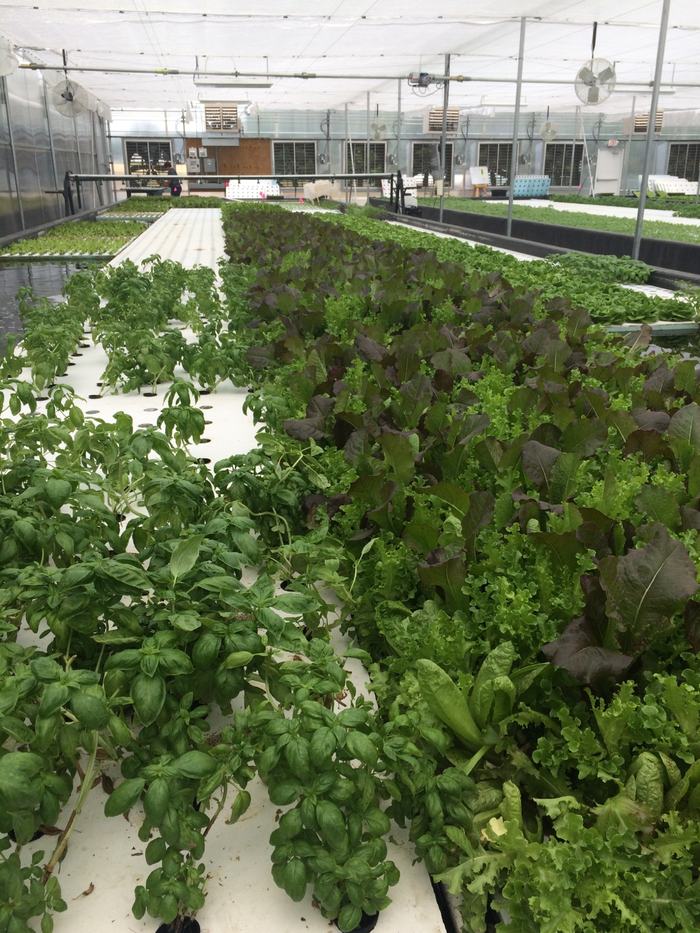
The co-production of plants with fish is a practice commonly referred to as Aquaponics. This technology has generated a great deal of interest and enthusiasm over the past few years, especially among urban dwellers wanting to be more self sufficient in food production. There are many different designs for systems as well as approaches to production from basic recreational use to high-tech commercial facilities. This page brings together research-based informational resources to provide a basic overview of the concept.
For the past several years, NC State has investigated some of the challenges and opportunities of aquaponic food production. This has included the development of a modest demonstration site at the University's Lake Wheeler Road research farm. As of this writing, due to issues with COVID-19, tours have been halted. However, for those interested in visiting, please contact Mr. Joseph Bursey, site manager (see "Aquaculture Team" tab). He will be able to provide an update regarding the facilities re-opening (likely summer 2021).
Educational Resources on Aquaponics and Related Topics of Interest